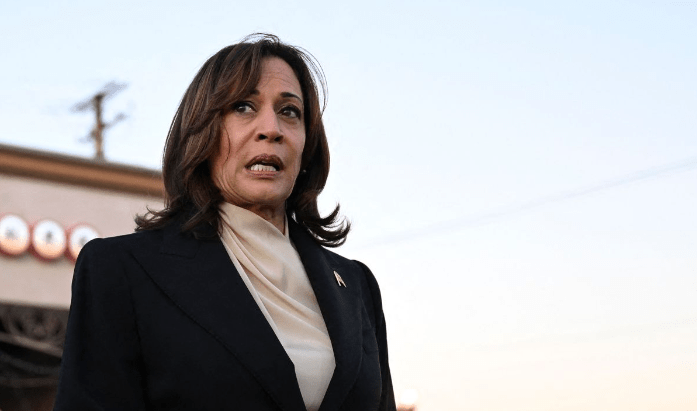The nation’s top banker dropped a bombshell prediction should the country continue with the inflationary policies of the Biden-Harris regime under a Harris-Walz administration. JPMorgan Chase CEO Jamie Dimon said Tuesday that while he is increasingly confident inflation is easing from its peaks, he would not completely dismiss the possibility of stagflation, which would be worse than a recession. “I would say the worst outcome is stagflation — recession, higher inflation,” Dimon said at a fall conference from the Council of Institutional Investors in Brooklyn, New York. “And by the way, I wouldn’t take it off the table.”
The CEO of the largest U.S. bank made these remarks as investors shift their focus to signs of slowing economic growth. Recent data indicate that inflation is trending toward the Federal Reserve’s 2% target, yet reports on employment and manufacturing show some signs of weakening, CNBC reported on Friday. Investors will receive further crucial information this week, with the consumer price index set to be released on Wednesday and the producer price index on Thursday.
Dimon expressed concern that upcoming inflationary pressures, including higher deficits and increased infrastructure spending, could continue to strain an economy already grappling with the effects of elevated interest rates. “They’re all inflationary, basically in the short run, the next couple of years,” Dimon said. “So, it’s hard to look at [it] and say, ‘Well, no, we’re out of the woods.’ I don’t think so.” The bank leader has previously cautioned about an economic slowdown. In August, he estimated the chances of a “soft landing” at around 35% to 40%, suggesting that a recession is the more probable outcome.
David Solomon, the influential Wall Street executive whose research was referenced during Tuesday night’s presidential debate, criticized Vice President Kamala Harris for using Goldman Sachs’ report to unfairly suggest that her policies would lead to a stronger economy. Although Harris frequently criticizes major banks like Goldman Sachs, she cited a recent report suggesting that her economic policies would slightly improve economic growth, though the effect would be minimal in the long run.
Solomon pointed out that Harris omitted this critical detail when asked if he watched the debate. “I think a lot more has been made of this than should be,” he told CNBC host Scott Wapner. “What it did is look at a handful of policy issues that have been put out by both sides, and it tried to model their impact on GDP growth… What it showed is the difference between the sets of policies they put forward is about two-tenths of one percent.”
No matter who wins the office next year, historically, markets react favorably during the first year of a new president. Therefore, Harris cannot credibly claim that her administration and ideas for governing will be any better for Americans’ stocks or bank accounts. “By the way, we have no idea if these policies, these things they talk about, will even be implemented,” Solomon said. “I think this blew up into something bigger than it was intended to be.”
Harris has introduced a series of progressive economic policies that face significant hurdles in becoming law. Achieving this would require Democratic control of both the U.S. House and Senate and Senate Majority Leader Chuck Schumer’s willingness to bypass the filibuster if necessary. Harris has pledged to reverse Trump’s 2017 tax cuts for the wealthy, increase tariffs on Chinese goods, and address inflation, though not as aggressively as Trump has proposed, according to USA Today. Goldman Sachs’ report included the vague promises, noting that “the hit to growth from tariffs and tighter immigration policy would outweigh” benefits brought by Trump’s pro-growth policies.
Furthermore, the two-tenths of one percent difference is based on estimates of Harris’s recent policies, which have significantly evolved since her 2019 presidential campaign. At that time, she had promised a federal ban on fracking, stringent mandates for transitioning to clean energy and electric vehicles, and increased funding for recent migrants, including gender reassignment surgeries. These positions, outlined in an ACLU questionnaire, surprised CNN investigators, who questioned Harris about the sincerity of her current centrist appeals in American politics. And she has said in her lone interview with CNN that her “policies have not changed.”



